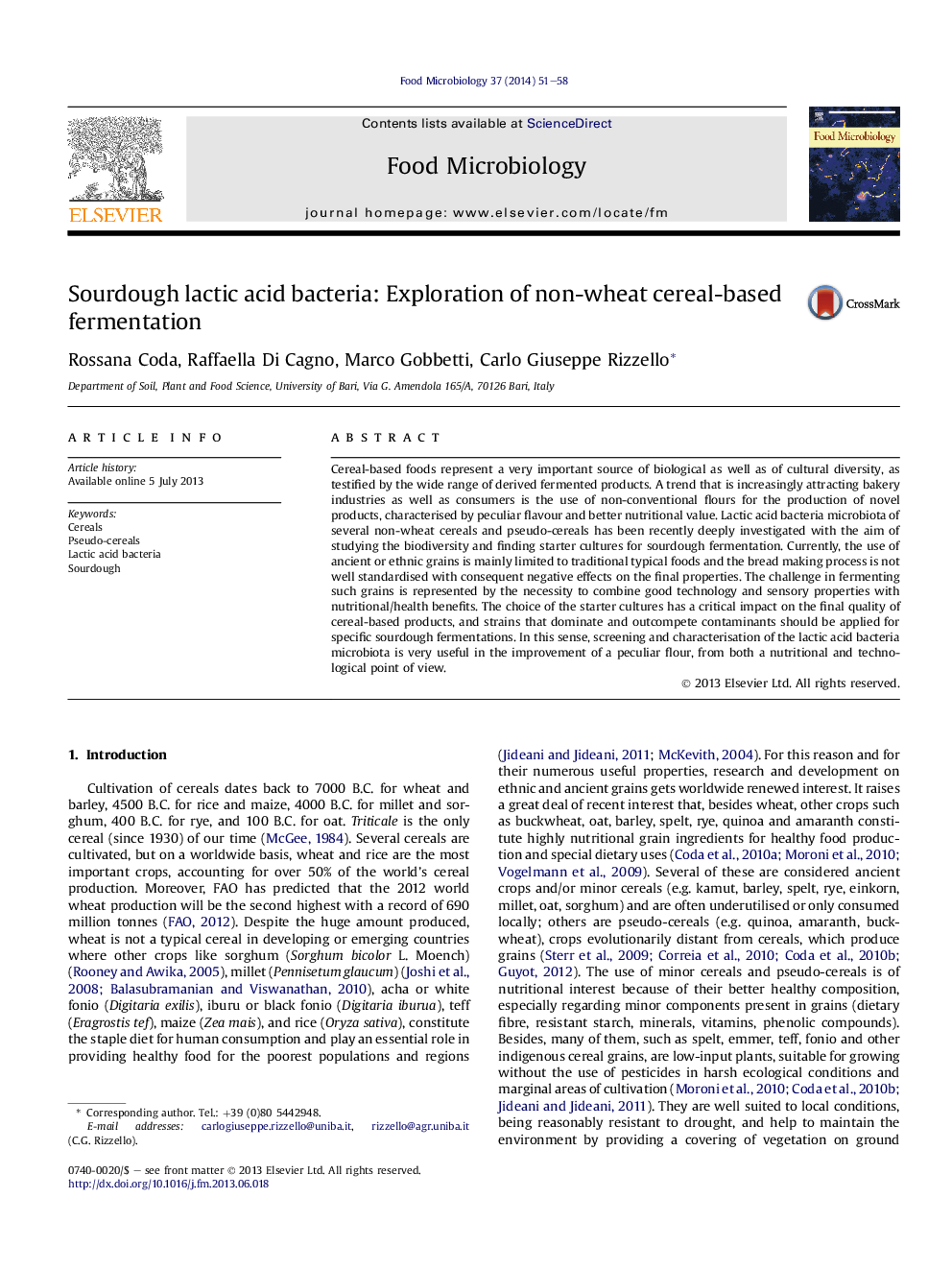| Article ID | Journal | Published Year | Pages | File Type |
|---|---|---|---|---|
| 4362958 | Food Microbiology | 2014 | 8 Pages |
Cereal-based foods represent a very important source of biological as well as of cultural diversity, as testified by the wide range of derived fermented products. A trend that is increasingly attracting bakery industries as well as consumers is the use of non-conventional flours for the production of novel products, characterised by peculiar flavour and better nutritional value. Lactic acid bacteria microbiota of several non-wheat cereals and pseudo-cereals has been recently deeply investigated with the aim of studying the biodiversity and finding starter cultures for sourdough fermentation. Currently, the use of ancient or ethnic grains is mainly limited to traditional typical foods and the bread making process is not well standardised with consequent negative effects on the final properties. The challenge in fermenting such grains is represented by the necessity to combine good technology and sensory properties with nutritional/health benefits. The choice of the starter cultures has a critical impact on the final quality of cereal-based products, and strains that dominate and outcompete contaminants should be applied for specific sourdough fermentations. In this sense, screening and characterisation of the lactic acid bacteria microbiota is very useful in the improvement of a peculiar flour, from both a nutritional and technological point of view.
